The Swedish-Thai business community was given a rare opportunity to get a heads up on the investment climate in Cambodia, courtesy of departing Ambassador of Sweden to Cambodia, Ms Anna Maj Hultgård.
The special seminar: ‘Doing Business i Cambodia: Opportunities & Challenges’ was hosted by and held at the Embassy of Sweden, Bangkok on 23 May, including among others members of the Thai-Swedish Chamber of Commerce.
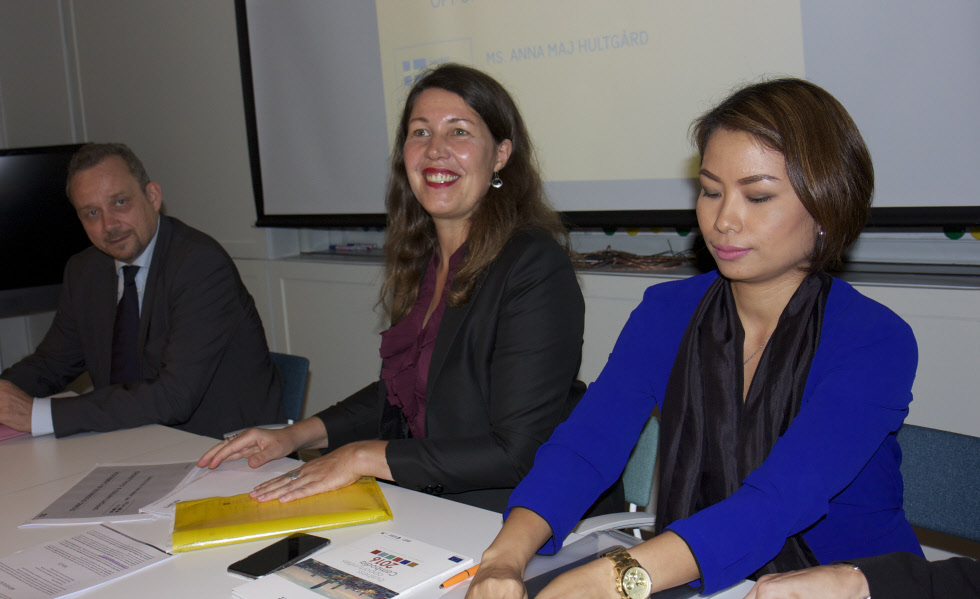
Ambassador of Sweden to Bangkok, Mr Staffan Herrström introduced the seminar and said that we all have an interest to expand the trade in the region, which is being done in various ways.
“We have the Sweden-Southeast Asia Business Summit coming up in Singapore we have jointly been initiating in the region. Then, with business presence in Bangkok it is obviously natural to come here and discuss Cambodia as a business destination,” said Ambassador Herrström.
With ‘Cambodia – Rebranding’ as a headline Ambassador Anna Maj Hultgård began her presentation by saying that she wished to give a balanced and up-to-date image of Cambodia in substance and perception.
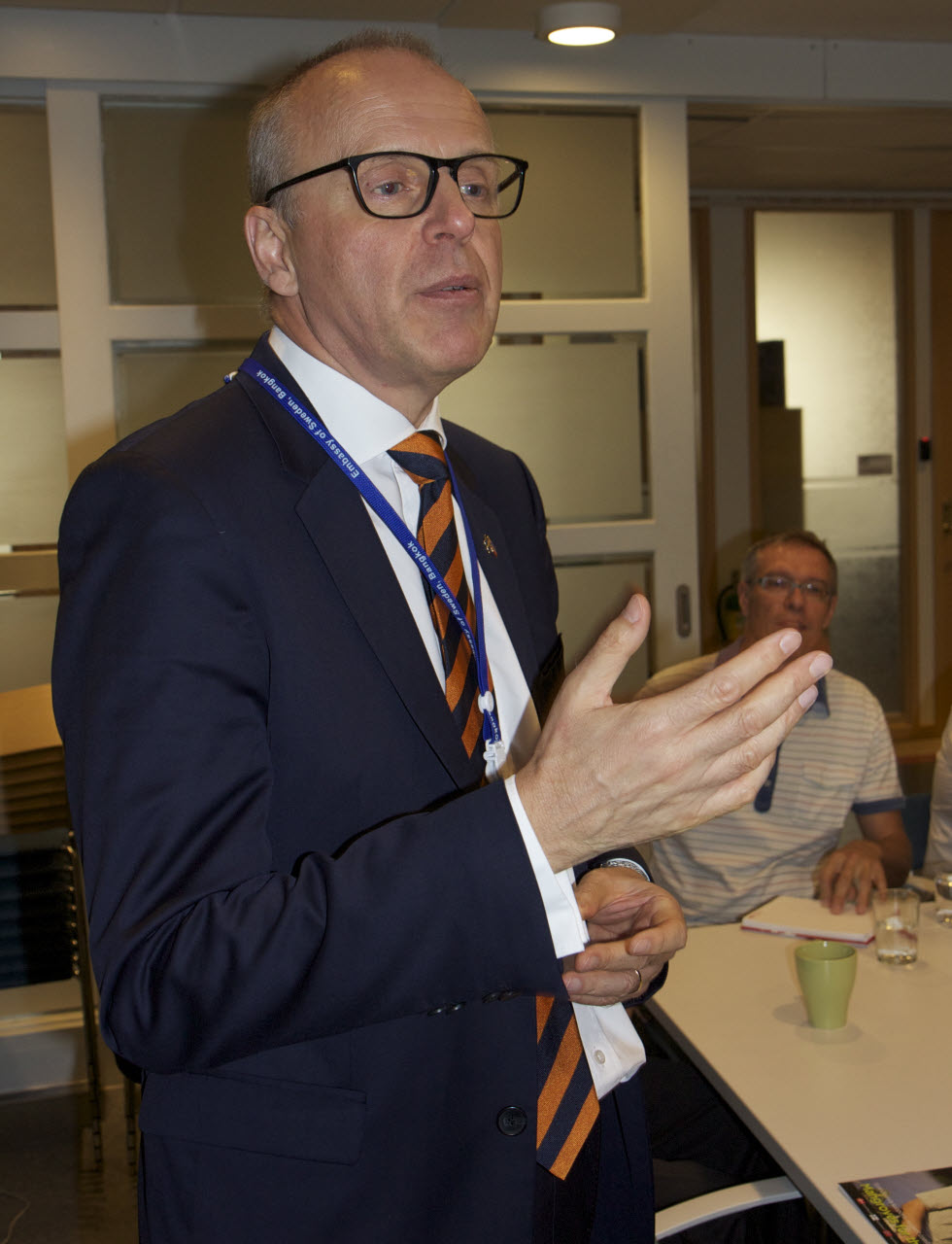 “We have a big aid programme, but I saw how much Cambodia had pogressed, and the connections we have and tremendous access to ministers etc., and thought we should do more on the business and trade side.”
“We have a big aid programme, but I saw how much Cambodia had pogressed, and the connections we have and tremendous access to ministers etc., and thought we should do more on the business and trade side.”
Aid will soon be phased out, with some donor countries having already left the country, informed the ambassador and continued: “The image of Cambodia is about war, the Khmer Rouge, which is part of its modern history. But for us living there and seeing the tremendous growth, I saw a mismatch about the image of this country.”
“It’s a very open country. What happens in Cambodia is out there. All UN organisations are there, reporting openly. I highlight this as a positive aspect; even the smallest abuses taking places is all reported, and in English language media mostly. All Human Rights bodies are there, being very critical and very active. We have to take that into account. That in a way also contributes to one image, that is at least partly true, but sometimes give an unbalance and unfair image.”
Some chambers of commerce surveys show a perception that may not be the updated one, she said.
“The image works a bit against, but it is not really corresponding to what is there today.”
Then she pointed to some indicators for the country: the hospitality industry has been booming in Angkor Wat, but also moving on to the coast; shopping centres, being new in a commercial context – there are in total twenty new to come on to the market; and that Cambodia has a very young and vibrant generation.
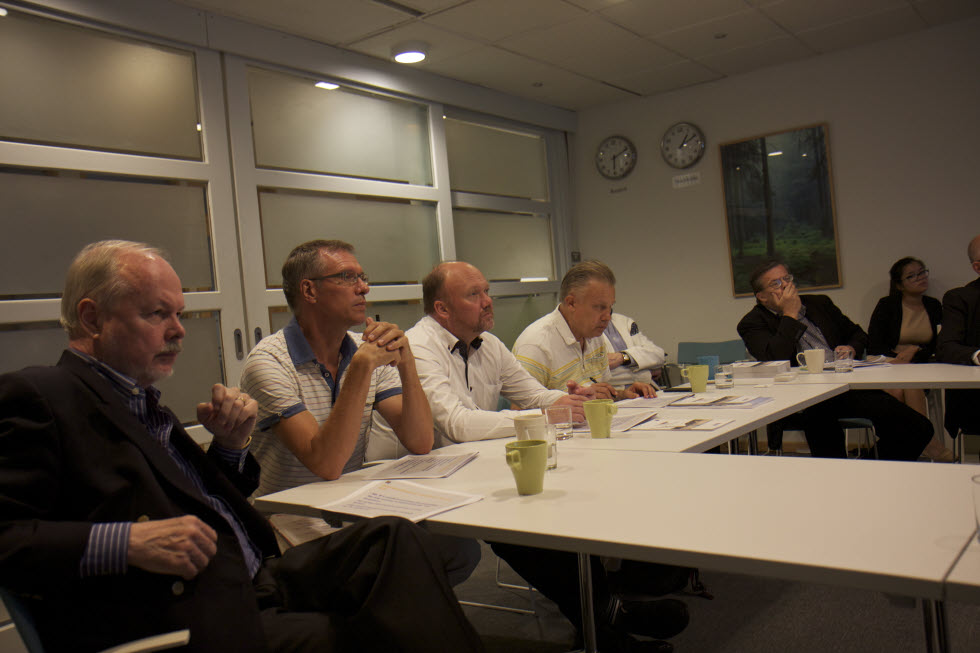
“The youth is one of the great potentials of Cambodia. The demographics data continues to accommodate economic transformation; with strong increase in the available work force.”
“I think there is great potential, but also point to some challengers that can be overcome.”
Looking at macroeconomics, the ambassador pointed to that the country ranks among the most rapidly growing economies in the world with a growth at about 7 per cent per year.
And there are reduced poverty and income disparities, where poverty has fallen from 50% in 2004 to 18% today.
“In some aspects Cambodia is where Thailand was 15 years ago, but Cambodia can also leapfrog on many aspects. Its technology sector is huge!”
Garments and construction sector are the main engines of growth and remain resilient despite global slowdown.
Manufacturing, construction, assembly, agribusiness and food processing are others.
“Labour standards in general are in-between compared to the region. Cambodia is somewhere in the middle. There are other issues, such as transport to and from the factories.”
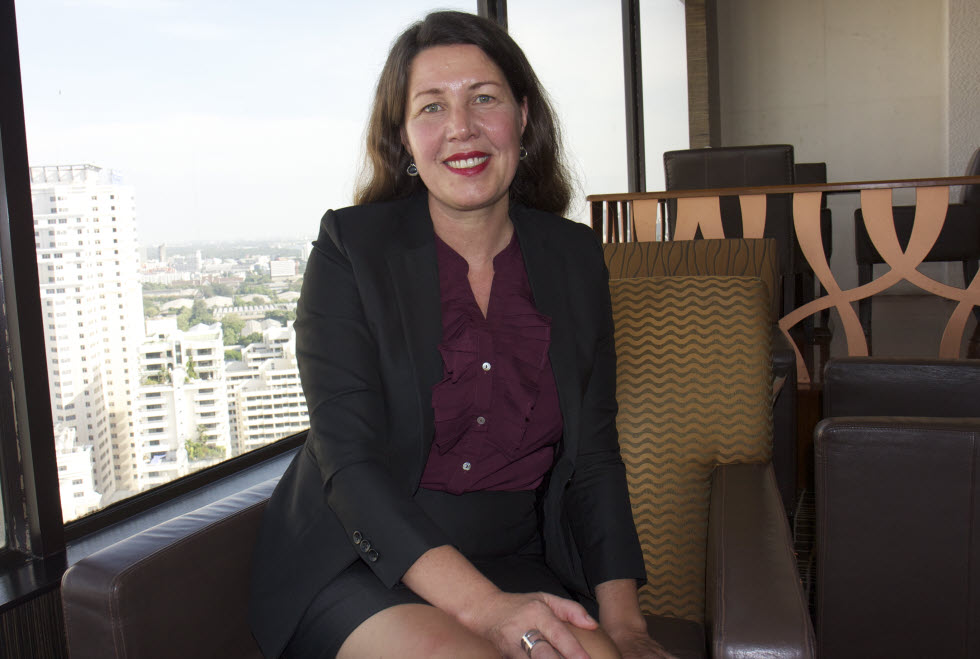
The seminar attendants put forward plenty of questions and one of those concerned Cambodia’s corporate social responsibility reputation.
In response the ambassador said that the Swedish embassy is working very actively with companies on CSR and hat Swedish companies should be able operate in difficult markets as well.
“Every factory is being monitored by the International Labour Organisation.”
The ambassador described the country’s government as business-friendly.
“The investment schemes are very liberal. Ease of doing business ranking is moving up. Mostly there are too few rules and you might lose out a bit on unpredictability.”
“It takes a bit too long still to set up a company,” the ambassador thought.
There is sometimes no legislation, such as for the construction sector, though the country is aware of that being an issue.
The new Industrial Policy has clearly expressed what needs to be in place in Cambodia concerning infrastructure, connectivity, productivity, and skills & SMEs.
“Part of the government’s plan and what we also see asneeded is to move up the value chain and having the capability to do the processing, and to move up to the higher end in the garment sector.”
As for the Asean Economic Community, Anna Maj Hultgård said that they are all positive towards this in Cambodia.
“I do believe that Cambodia will benefit, as it is about openness and having to be competitive. They are too small to be protectionists.”
Reasons to invest there she highlighted: competitive labour force; preferential market access to EU and the U.S; its geographic location: in the heart of SEA; low taxes; and the quality of life.
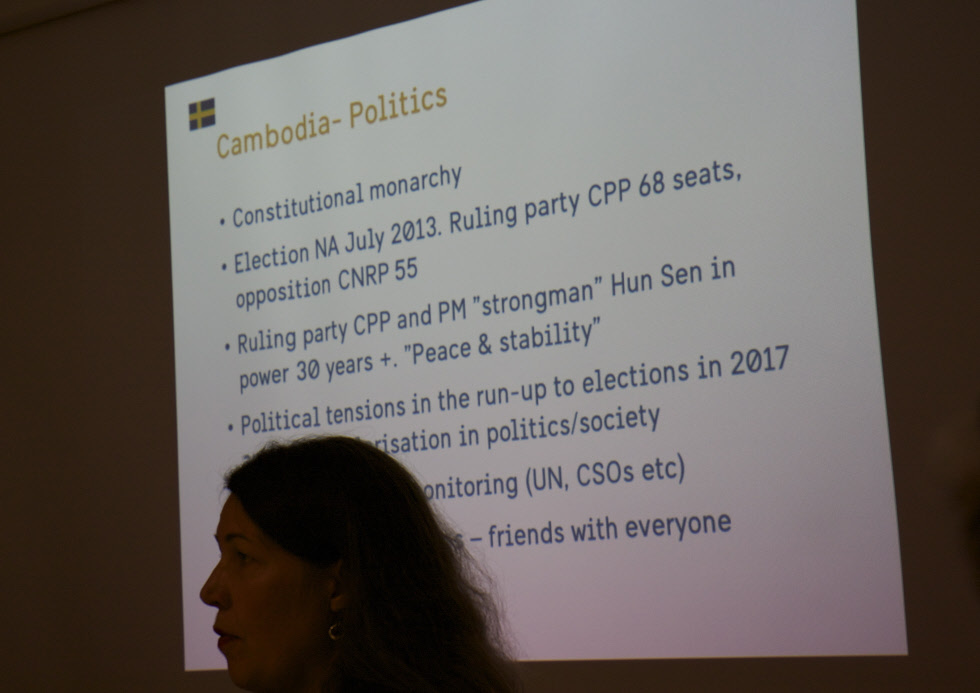
Cambodia has “extremely liberal investment rules”. Only on land there are restrictions but foreigners can own factories and buildings. Land lease can be up to 99 years long. There are also no limitations on bringing in foreign workers. Also repatriation of profits is not restricted.
As for challenges these are: corruption; weak institutions and implementation, high energy costs, infrastructure still being under development, skills gap, and a deteriorating political context.
Tensions are expected to increase in the run up to the elections in 2017 and 2018, with polarisation in politics and society.
